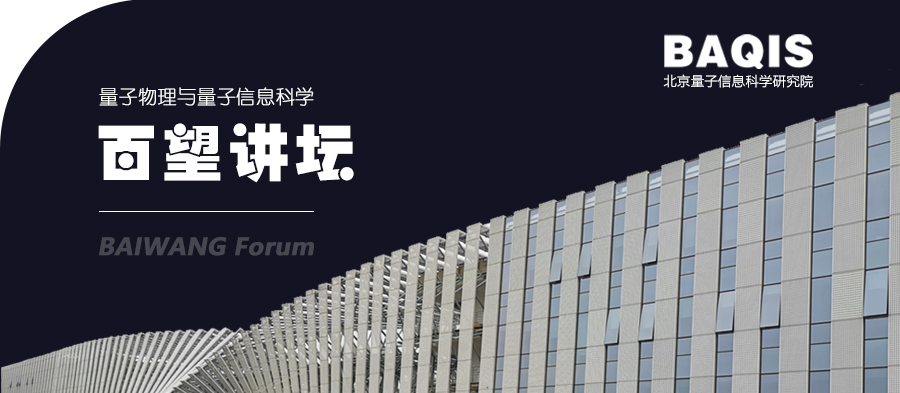Baiwang Forum 56: Quantum Fluids of Light in a Chip
2024/01/12

Date and Time: 12-Jan-2024(Friday)10:30am (Beijing time)
Speaker: Prof. Daniele Sanvitto, Director of Research at the Institute of Nanotechnology of the Italian National Research Council (CNR)
Venue: Room 320
Host: Qihua Xiong, Tsinghua University / BAQIS
Title: Quantum Fluids of Light in a Chip
About the Speaker:
Daniele Sanvitto is Director of Research at the Institute of Nanotechnology of the Italian National Research Council (CNR), head of the Advance Photonics facility. He received his PhD degree from the University of Cambridge (UK) in conjunction with the TOSHIBA research center and took up different prestigious fellowships (Marie Curie, Ramon y Cajal, etc.) in several European institutions, including the Institut Jacques Monod in Paris, the University of Sheffield in UK and Universidad Autonoma de Madrid, in Spain. He was the recipient of two ERC research grants on fundamental aspects of quantum fluids of lights and their applications in electro-optical devices. Recently he is coordinating one European EIC Pathfinder and two PNRR projects of national relevance on quantum technologies. His research interest revolves around the intriguing domain of strong light-matter coupling, leading to the emergence of novel quasiparticles known as exciton-polaritons. Recently, his team has uncovered a number of exciting progress in the non-equilibrium Bose-Einstein Condensates, particularly when formed in specifically engineered band structures, of which, the topology, can be artificially designed and synthetic gauge fields.
Abstract:
In this seminar, we explore the burgeoning field of strong light-matter interactions, particularly when photons are confined in semiconductors, giving rise to a unique quasiparticle – the exciton polariton. This hybrid state, combining photons and electronic excited states, exhibits remarkable properties, evolving into a coherent state known as Bose-Einstein condensate, akin to cold atoms. Beyond the potential for all-optical devices with advantages in energy consumption, dissipation-less operation, and high clock frequencies, polaritons have revealed fascinating macroscopic quantum phenomena, including superfluidity, quantized circulation, and parametric effects, to cite a few. More recently it has been shown that these fluids also excel in neuromorphic computation, opening doors for hardware implementation of artificial neural networks. The seminar will spotlight the dynamic aspects of a quantum flow of polaritons, revealing their potential as a platform for studying complex phenomena difficult to simulate in classical systems. A particular focus will be on turbulence in a quantum system, which, beyond its fundamental interest, can serve as an ideal test bed for the study of two-dimensional classical turbulent flow. By simultaneously mapping flow velocity and density in space, we gain insights into the ultrafast dynamics of thousands of vortex states. Additionally, the seminar will explore the exciting possibility of optically creating a Josephson junction and observing flux onset in an annular condensate, reminiscent of superconducting Josephson junctions.
References
[1] Sanvitto, D. & Kena-Cohen, S. The road towards polaritonic devices. Nat. Mater. 15, 1061–1073 (2016).
[2] G. Lerario, et al. Room-temperature superfluidity in a polariton condensate. Nat. Phys. 13, 837 (2017).
[3] D. Caputo, et al. Josephson vortices induced by phase twisting a polariton superfluid, Nat. Photon. 13, 488 (2019).
[4] R. Panico, et al., Dynamics of a Vortex Lattice in an Expanding Polariton Quantum Fluid, Phys. Rev. Lett. 127, 047401 (2021).
[5] D. Ballarini, et al. Polaritonic Neuromorphic Computing Outperforms Linear Classifiers. Nano Lett. 20, 3506 (2020).
[6] R. Panico, et al. Onset of vortex clustering and inverse energy cascade in dissipative quantum fluids, Nat. Photon. 17, 451 (2023).
 中文
中文 Email
Email QCloud
QCloud Log in
Log in
